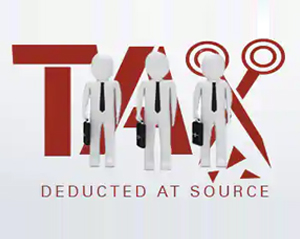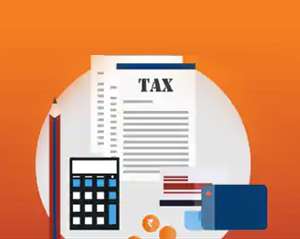What is Advance Tax?
Advance tax is the amount of income tax that is paid much in advance rather than a lump-sum payment at the year-end. Also known as earn tax, advance tax is to be paid in installments as per the due dates decided by the income tax department.
Who should pay advance tax?
Every taxpayer with an estimated tax liability of ₹ 10,000 or more in a financial year is liable to pay advance tax. To elaborate further, here is who should pay advance tax:
Salaried individuals
Salaried individuals can pay advance tax on their income earned through their jobs if their total tax liability is more than ₹ 10,000 in a financial year.
Freelancers
Freelancers can pay advance tax on their varied sources of income earned throughout the year, if their total tax liability exceeds ₹ 10,000 in a financial year.
Businesses
Businesses can pay an advance tax under the presumptive taxation scheme of Section 44AD on the income generated through their company.
Senior Citizens
Senior citizens who have earned a business income in a financial year must pay advance tax.
Presumptive income for professionals
Self-employed professionals like lawyers, doctors, architects and others who fall within the presumptive scheme outlined in Section 44ADA must pay advance tax.
How is advance tax calculated?
Here is how the advance tax to be paid is arrived at:
| Income tax on estimated total income |
| - Relief under section 87A |
| = Income tax after relief u/s 87A |
| + Surcharge on the estimated income |
| = Tax Liability |
| + Education cess |
| + SHEC |
| = Total Tax Liability |
| - Relief other than relief u/s 87A |
| - TDS |
| = Advance Tax Liability |
Why is advance tax important?
Advance tax is the income tax paid in advance for the income earned in a particular financial year. Usually, the tax is to be paid when the income is earned. Still, under the tax provisions of advance tax, the payer has to estimate the income for the entire year. And based on this estimate the tax is paid at specific time intervals. Here it is important that the tax payer estimates the income and then calculates the estimated tax on it to check whether he or she needs to pay the advance tax and how much.
What are the important dates in advance tax?
Advance tax varies with the due dates. For FY 2017-18, the advance tax to be paid by an individual, as well as corporate assessees, are as follows:
| Due Date | Advance Tax Payable | |
|---|---|---|
| 1. | On or before June 15 | 15% |
| 2. | On or before September 15 | 45% |
| 3. | On or before December 15 | 75% |
| 4. | On or before March 15 | 100% |
Which forms are required in advance tax?
Challan No. ITNS 280 is the form that needs to be duly filed on the prescribed due dates. Pre-requisites of Challan No. ITNS 280 are:
- PAN Details: Carefully publish correct PAN details, or else your tax will be deposited in someone else’s name
- Assessment Year: Select the correct assessment year for which the tax is to be paid as it is going out in advance for the upcoming financial year
- Selecting the type of payment: The taxpayer has to select the type of payment in the form. If the tax is being paid for the same financial year based on the estimated income- it would be advance tax. If the tax is being paid after the end of the financial year – it would be self-assessment tax.
After the payment is made, a Challan Identification Number (CIN) will be provided. You are required to keep a note of the same and use this CIN while filing for income tax return. Also, verify once whether the IT department has received the online payment made through ITNS 280.
What is the interest on late payment of advance tax?
Here’s what happens in case of late payment of advance tax:
Interest under 234B
According to Section 234B, you are required to pay at least 90% of your total taxes through advance tax or Tax Deducted at Source / Tax Collected at Source (TDS / TCS) by March 31. In case of failure to pay advance tax, you will incur interest charges under Section 234B at an interest rate of 1% on the unpaid amount.
Interest under 234C
Under Section 234C, you will incur the following charges:
| Scenario | Interest rate | Duration of Interest | Basis for Interest Calculation |
|---|---|---|---|
| Advance tax paid by June 15 is less than 15% | 1% per month | 3 months | 15% of total amount minus tax paid before June 15 |
| Advance tax paid by September 15 is less than 45% | 1% per month | 3 months | 45% of total amount minus tax paid before September 15 |
| Advance tax paid by December 15 is less than 75% | 1% per month | 3 months | 75% of total amount minus tax paid before December 15 |
| Advance tax paid by March 15 is less than 100% | 1% per month | 1 month | 100% of total amount minus tax paid before March 15 |
People like you also read ...








